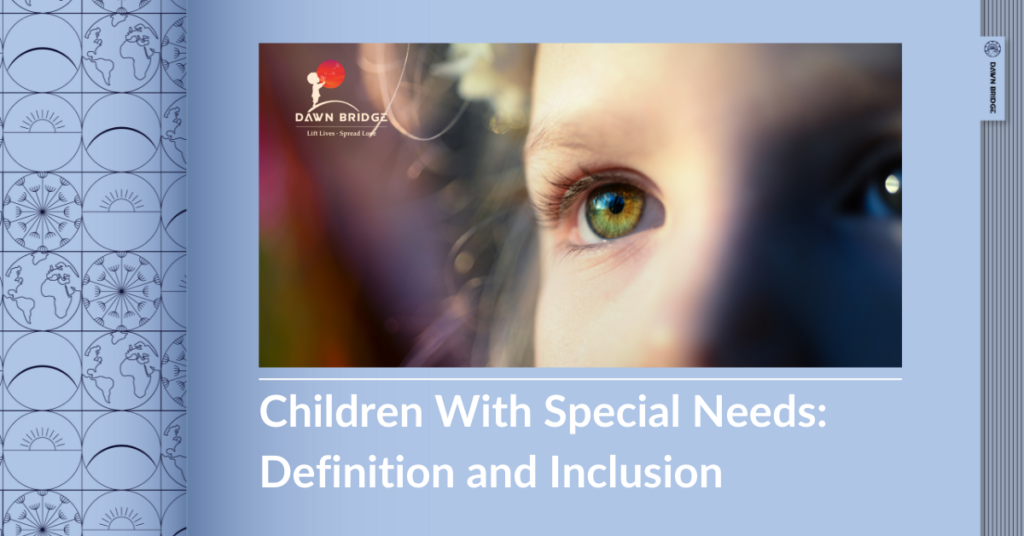Special needs is a clinical diagnostic and functional development term used to describe individuals who require additional or specialized services and support for any kind of disabilities i.e. physical, emotional, behavioral, or learning disability or impairment.
Four Categories of Special Needs
1. Physical
Such as muscular dystrophy, multiple sclerosis, chronic asthma, and epilepsy
Condition that prevents normal body movement and control. Muscular dystrophy and cerebral palsy are common. Causes include genetics, serious illness, spinal cord injury and brain damage.
2. Developmental
Such as Down syndrome, autism, dyslexia, and processing disorders
Generally detected early on since mental or physical impairments cause these disabilities. Common are down syndrome and fragile x syndrome.
3. Behavioral or Emotional
Such as ADHD, bipolar disorder, or oppositional defiance disorder
An inability to build or maintain interpersonal relationships, an inability to learn, and feelings of depression or anxiety. ADD is common. Bipolar disorder is a common emotional disability.
4. Sensory Impaired
Such as being blind, visually impaired, deaf, or hearing-impaired
When sight, hearing, smell, touch, taste, spatial awareness is not at average functioning level. Common in limited hearing or visual impairment. Causes are injury and infection and genetics.
What can be done to help someone with special needs?
Your child’s early years are a very important time for their physical, emotional, intellectual and social development. When the health visitor or doctor makes a routine check, they might suggest that there could be a problem. If you have any worries of your own, you should ask for advice right away.
You should ask your child’s class teacher, the person in the school responsible for helping children with special educational needs or the headteacher.
If a student is suspected of having special needs, a comprehensive assessment should take place as early as possible. If a student is determined to have special needs (by meeting the criteria or requirements for special educational services), they may be eligible to receive certain specific free services to help with their unique need. These services should be appropriate to the student’s needs and abilities and promote the inclusion of all with special education needs, regardless of disability. While educational provision is available in special schools that cater specifically for students with special needs, many students can benefit from attendance at mainstream schools provided that adequate arrangements can be put in place to meet their needs. Remedial, resource and visiting teachers provide services for students with a range of special needs attending mainstream schools.
A Word From Verywell
Although every special needs child is different and every family is unique, there are some common concerns that link parents. These include getting appropriate care and promoting acceptance in the extended family, school, and community. For some, planning for an uncertain future may be necessary. You will also find yourself adjusting routines and expectations, sometimes quite often.
Out of necessity, parents of children with special needs are often more flexible, compassionate, stubborn, and resilient than other parents. While it may not be something you had hoped for or expected, it is important for your child that you try to do your best. You can take comfort in the fact that you’re not alone, so feel comfortable reaching out for support.

